AUGUSTA — In her daughter’s cramped two-bedroom mobile home on a quiet road, Heather Clark sleeps on the bottom bunk. Her two grandsons sleep together in the bed up top.
Clark, 47, is homeless for the second time in her life after previously living in Oakland. Twenty years after her first bout with homelessness, Clark is living with her daughter’s family. She feels her presence is “an undue burden,” as seven people cram into the mobile home.
“I’m supposed to be helping her, not hurting her,” Clark said of her daughter. “I’m supposed to take her in, not the other way around.”
Clark has a voucher from MaineHousing, the state’s housing authority for towns without their own, and it covers up to $744 a month, including utilities. On Supplemental Security Income since she was age 28, Clark cannot work because of fibromyalgia, severe chronic back issues and mental health issues, including severe anxiety and depression, as well as chronic Post Traumatic Stress Disorder from when her mother died during Clark’s childhood.
She and her case manager submitted at least 10 applications for apartments over the past few months, but hit numerous road blocks. There are waiting lists. Rental costs are too high. Her former landlord gave her a bad reference. Some security deposits are for three or more months rent, and Clark can’t meet that.
“I feel so stuck, and it really has an effect on my mental health, not being able to fix this problem,” Clark said. “I just want a place to be.”

Heather Clark, 47, center, holds her grandson Dillon, 6, while sharing the couch with her grandkids and daughter in Augusta on Monday. Rich Abrahamson/Morning Sentinel Buy this Photo
Clark and many others are finding the struggles of homelessness accentuated by the COVID-19 pandemic. Already-tight housing stock has become even tighter over the last year, as state protections against evictions have limited new housing options for those without.
William E. Higgins Jr., executive director of the nonprofit organization Homeless Advocacy for All, noted that apartment evictions are down due to a statewide moratorium in Maine. According to the Maine Affordable Housing Coalition, evictions are down in Kennebec County by 26% from January through November 2020. The extension of unemployment benefits and court closures slammed shut the “revolving door” of housing, he said.
“With that being said, there are fewer openings for individuals to move into,” Higgins said. “Over the first six to eight months dealing with COVID, staff from shelters were more involved in the mitigation of COVID and safety. It reduced the available hours to help individuals obtain housing.”
Meanwhile, Kennebec County’s 4.1% unemployment rate in December was 1.4% higher than the year before.
In Waterville, Mid-Maine Homeless Shelter Executive Director Katie Spencer White said the Colby Street shelter is serving about one-third more people than it did before the pandemic. Before the pandemic, the shelter placed around 20 households a month in permanent housing. That figure is down to an average of four because of a lack of housing supply.
The shelter supports those with the highest needs first, so those who are unsheltered go first and veterans and families with young children are in the top needs category. Those using the shelter keep their bed until they voluntarily turn it over or find housing, which makes turnover low.
Spencer White said the shelter operates under a “Housing First” model, a national framework introduced two decades ago. Even though people may have all the necessary documents in place, there is no housing. Statewide, there are only 53 shelter beds for every 100 people who need them.
“Housing First says all people are ready for housing,” Spencer White said. “Sometimes people don’t have all the paperwork they need. They’ve lost or had to leave behind birth certificates and Social Security cards, so we often assist getting copies of these vital documents. Due to the pandemic, these processes are slower than ever.”
As of this past week, there were no one-bedroom apartments currently available for someone not in the age 55+ range on MaineHousing Search, a rental listing service initially funded by MaineHousing and the Maine Department of Health and Human Services.
There are advertisements for apartments on popular sources, such as Apartments.com, Craigslist and Facebook Marketplace, but those sources can be unreliable. There are units advertised that are not available. Some don’t even exist.
“I think it’s definitely true that it’s very hard to find housing right now, even if they have vouchers,” said Katherine McGovern, managing attorney at the Portland office of Pine Tree Legal Assistance.
The National Low Income Housing Coalition, a nonprofit organization based in Washington, D.C., estimates Maine is short more than 21,000 affordable, available rental units for those in the extremely low-income bracket. A full-time worker in Kennebec County needs to make $12.50 hourly to pay for a modest one-bedroom apartment.
“What we find is that no region has an adequate supply of housing for extremely low-income renters,” said Andrew Aurand, vice president of research for the National Low Income Housing Coalition. “There’s clearly a significant shortage in Maine. It’s a bit less severe than in other areas of the country, but there’s still a significant shortage.”
General assistance does not support security deposits for an apartment. Those who can try to save up for a security deposit may see their voucher expire after around 120 days, but the pandemic changed that a bit. Kennebec Valley Community Action Program Development Director Andrea Pasco said providers are finding it easier to locate a two- or three-bedroom apartment, but those are no good for a single person experiencing homelessness.
For single homeless people, however, it may not be affordable to live in a multi-bedroom apartment. It is difficult to find available one-bedroom apartments.
The Waterville Housing Authority has a waiting list for all types of apartments and assistance, and that trend dates back well before the pandemic, said Diane Townsend, the authority’s executive director. The authority also handles Section 8 vouchers, a statewide program. To receive a Section 8 voucher, applicants have to meet certain qualifications including family status, income level, citizenship status and eviction history. There is an average four-year wait to receive assistance for Section 8 voucher holders in the area, Townsend said.
“When somebody is on the phone saying, ‘I need help now,’ it’s very difficult,” said Townsend, who has held her position for 12 years. “It makes you feel rather inadequate because you can’t help people who need help. It’s certainly a difficult situation, and it’s hard to say no to people who desperately need help.”
General assistance applications in Waterville more than doubled during the pandemic, from 51 in March 2019-February 2020 to 122 from March 2020-February 2021.
FAMILY SUPPORT
Clark’s most recent housing issues date back to August 2020. She was evicted from her Farmingdale apartment due to circumstances she said were beyond her control. Clark did not take it to court, because she feared losing her housing voucher.
Upon eviction, Clark and her former fiancé moved with a friend to Pittsfield. After a couple of months of using the living room as a bedroom, she and her former fiancé moved to Oakland, where she became the full-time caretaker of her former fiancé’s ailing father. Clark became homeless three days after Christmas, when her fiancé decided to end the relationship after one year.
“He just told me to go,” she said.

Heather Clark, 47, moved in with her daughter and the kids after becoming homeless in December 2020. She is shown at the home in Augusta on Tuesday. Rich Abrahamson/Morning Sentinel Buy this Photo
For the next three days, Clark lived in her car with Kyah, her 9-month-old pitbull and emotional support dog. An open spot at the Mid-Maine Homeless Shelter did not pan out because of Clark’s desire to keep her dog. Clark thought about giving Kyah to a foster home, but ultimately decided against it.
Clark placed her hands around Kyah, who calmly sat on a rose patterned blanket. Because Kyah is not a certified service dog, options are limited.
“I’m doing everything I can not to give her up,” Clark said. “I’m not ready to completely surrender her. She’s all I have left.”
While explaining her situation, Clark wiped away tears from her face. Dillon Grant, 6, jumped in her lap for a bear hug. “She’s our Mimi,” he exclaimed.
Clark lived in the Best Western in Waterville for two weeks but soon realized it was not affordable. It cost nearly $100 a night there and more at other hotels due to pet fees. The cost of a hotel room sapped her entire Supplemental Security Income check.
In early January, Clark’s daughter Ariel Grant, 22, and her boyfriend, Joe Darling, welcomed Clark into their Augusta home. With 2-year-old Amyiah Darling and 9-month-old Madison Grant, all those people crammed into a two-bedroom trailer on a quiet road in Augusta. The boys, Dillon and 4-year-old Gabriel Grant, used to have their own beds, but now they share. They don’t seem to mind, but it tears at their grandmother’s heart.
Ariel Grant said her mother’s presence is not a burden, but it does create a “chaotic” environment.
“I’m not going to make her be out on the street. I don’t want that to happen to her,” Ariel Grant said. “If it was a burden, she wouldn’t be here. I’m trying to keep everyone at bay with everything.”
Last summer, Grant and her children stayed with Clark in Farmingdale while they experienced homelessness. “That’s the way it’s supposed to be,” Clark said.
Clark said she spent five years in her first apartment when she got on housing assistance 20 years ago, 10 years in the next. She feels local landlords aren’t giving her a fair shot due to one bad reference.
“Sometimes they just judge you because you are on housing, that you might not be a good tenant,” Clark said. “I am a good tenant. I’ve always paid my rent, but some landlords never give you a chance.”

Heather Clark, 47, moved in with her daughter and the kids after becoming homeless in December 2020. She is setting up her workstation Tuesday at the home in Augusta. She designs artwork onto shirts and other items. Rich Abrahamson/Morning Sentinel Buy this Photo
While working on her housing, Clark hopes to start a small business. She customizes shirts and cups with heat transfer vinyl. She said it’s her best coping mechanism.
Clark knows there are people experiencing worse situations, and considers herself lucky to have a place to stay.
“I would be living in my car or something,” Clark said.
NOWHERE TO GO
The black Swiss Gear backpack carries nearly everything Raymond Hamilton owns.
Save for some art-filled sketchbooks, journals packed with poetry and his parent’s ashes stored in the trunk of a friend’s car, the 31-year-old Hamilton carries everything in his well-worn backpack. In it he’s got colored pencils, sketchbooks and a speaker. The only clothes he has are on him: dark pants and Jordan sneakers, a light sweatshirt, sweater and undershirt.
His jacket was stolen the other night when he slept on a cold, hard street.

Raymond Hamilton, 31, became homeless after both of his parents died. When not on the streets of Waterville, Hamilton is sheltered by friends. Hamilton, a tattoo artist, is seen while walking to a friend’s home in Waterville on Tuesday. Rich Abrahamson/Morning Sentinel Buy this Photo
“I’ve been my biggest downfall, but the only way I’m going to get out of it is myself,” Hamilton said in Waterville, as winds made it feel like minus 20 outside.
It’s 3:36 p.m. on a Thursday. Hamilton ponders where he will spend the night. “I have no idea,” he said.
Hamilton has many other struggles beyond no place to live. He has bipolar disorder, depression and post traumatic stress disorder. His parents died last summer. Hamilton does not talk to his twin brother. This isn’t the first time Hamilton has been homeless, but this time has been the toughest.
“I always had someone to lean on, a helping hand, a way to get out of the rut,” Hamilton said. “I go one step forward and 10 steps backward.”

Raymond Hamilton, 31, became homeless after both of his parents died. When not on the streets of Waterville, Hamilton is sheltered by friends. Hamilton, a tattoo artist, is seen in Waterville on Tuesday. Rich Abrahamson/Morning Sentinel Buy this Photo
When his father died in August, Hamilton kept the apartment. On a September day he found the entirety of his apartment outside. He said the eviction came as a surprise, with no eviction notice. He said he never signed one.
“I was just basically kicked to the streets,” Hamilton said.
Since then, he’s struggled. Hamilton sometimes worked odd jobs and did tattoos. He’s not licensed but wants to be some day.
Hamilton’s daughter is in foster care. To get custody of her, he needs stable housing. A Portland native, Hamilton acknowledges a criminal past. He spent most of his teenage years at Mountain View Youth Development Center in Chelsea. Hamilton said since 2012 the only mark against him has been violation of probation to see his ailing mother in Pennsylvania. He’s been off probation for three years.
He said he can’t afford an apartment. To do so, he’d need means beyond his Supplemental Security Income. In the past he looked to rent individual rooms, but between his background and a general apprehension due to the pandemic, there are no takers.
Data from Technical Assistance Collaborative says that statewide trends show Supplemental Security Income is not enough to cover the average one-bedroom apartment. The cost of an efficiency apartment would use 99% of the income.
Hamilton’s property has been stolen more than once. He spends some of his day “window shopping” at area stores to stay warm.
Asking friends for a room is not something Hamilton does, but he will stay if there is an offer. He’s tried the homeless shelter, but it hasn’t worked out. When he gets enough money for a hotel, he’ll stay there.
Despite the challenges, Hamilton believes he is holding up well mentally. If he finds housing, he hopes to get his daughter back. He hopes to finish his bachelor’s degree in psychology and mental health with a minor in art history. Hamilton needs just two more math classes. Some day, he wants to do art therapy.
“I’ve been pretty much put aside on every aspect when it comes to getting help,” Hamilton said. “Of course it’s not right, but I’m an adult and I should be taking care of my own. I am where I am for a reason.”
LACK OF ACCESSIBLE HOUSING
In Maine’s biggest city, Lisa Smith struggles to understand why she can’t find stable housing in Portland. She’s got the assistance but remains living in a hotel. In a wheelchair since 2007 due to fractured disks in her back and other injuries, Smith cannot find an accessible apartment.

Lisa Smith is seen Tuesday outside of her room at a motel she is staying at in South Portland. Smith has been homeless for almost two years and came down to Portland from Waterville to go to the hospital last fall. Since then Smith has been bouncing between different motels and hospitals. Brianna Soukup/Portland Press Herald
A former Waterville resident and Unity native, the 43-year-old Smith recently moved from Motel 6 to another Portland-area hotel. Smith said she feels discriminated against because of her disabilities. She was recently approved for $1,350 a month for Bridging Rental Assistance Program assistance, but there are just no handicap apartments available for her.
“They don’t seem to know where to find one,” Smith said before pausing to hold back tears. “I’m broken-hearted, because I’m an American, and when you’re trying to live second to second and minute to minute, wondering where you’re going to be, you find terror real quickly.”
“I have to live with this the rest of my life, the abuse,” Smith continued. “I have nightmares waking up crying every night, because I am homeless. People think I am trash because I am homeless. I’m not.”

Lisa Smith is seen Tuesday at the motel she is staying at in South Portland. Smith has been homeless for almost two years and came down to Portland from Waterville to go to the hospital last fall. Since then Smith has been bouncing between different motels and hospitals. Brianna Soukup/Portland Press Herald
MaineHousing spokesperson Cara Courchesne said it can take twice as long for disabled households to find housing than nondisabled households. Cullen Ryan, executive director at Community Housing of Maine, said about 25% of affordable housing created using resources through the Maine State Housing Authority is handicap accessible.
Maine’s existing housing infrastructure is “not set for aging in place handicap needs,” Ryan said. “Whenever the Maine State Housing Authority puts in new resources, they’re hopefully trying to rebalance that by having some handicap accessibility back in the supply.”
Smith pays for her hotel room through general assistance and Social Security disability checks. City of Portland Social Services Director Aaron Geyer confirmed that individuals experiencing homelessness can utilize general assistance for hotel rooms.
“All kinds of housing have become much more difficult for people to access at this time, and that would definitely apply to disabled people as well,” said McGovern of Pine Tree Legal.
Sara Olson, director of development and communications at Avesta Housing, said in an email that the Portland-based affordable housing nonprofit had 3,500 households on its waitlist at the end of December. The harder to get handicap-accessible units can become available in two ways. Either they build a new building or an Avesta resident ends their lease.
“The number of people ending their lease with us has slowed down during the pandemic, resulting in fewer vacancies across the board, including handicap-accessible apartments,” Olson said.
Smith became homeless for the first time about 18 months ago while living in Waterville. She came to Portland in September due to a medical emergency. She spent three months at Maine Medical Center before being discharged around the new year. Smith has no contact with her family.
Since leaving the hospital, Smith has spent every night in a hotel room. After using her general assistance checks, just over $800 a month, there’s no money left over for anything besides her room.
Smith lost her food stamps, so her case manager makes weekly deliveries of rations from Preble Street.
A shelter bed wouldn’t be safe. Smith’s at a high-risk for the coronavirus with a suppressed immune system.
“I know there are some people who choose to be homeless, but there are some of us who are homeless and are in a predicament,” Smith said. “We can’t help it.”
Send questions/comments to the editors.


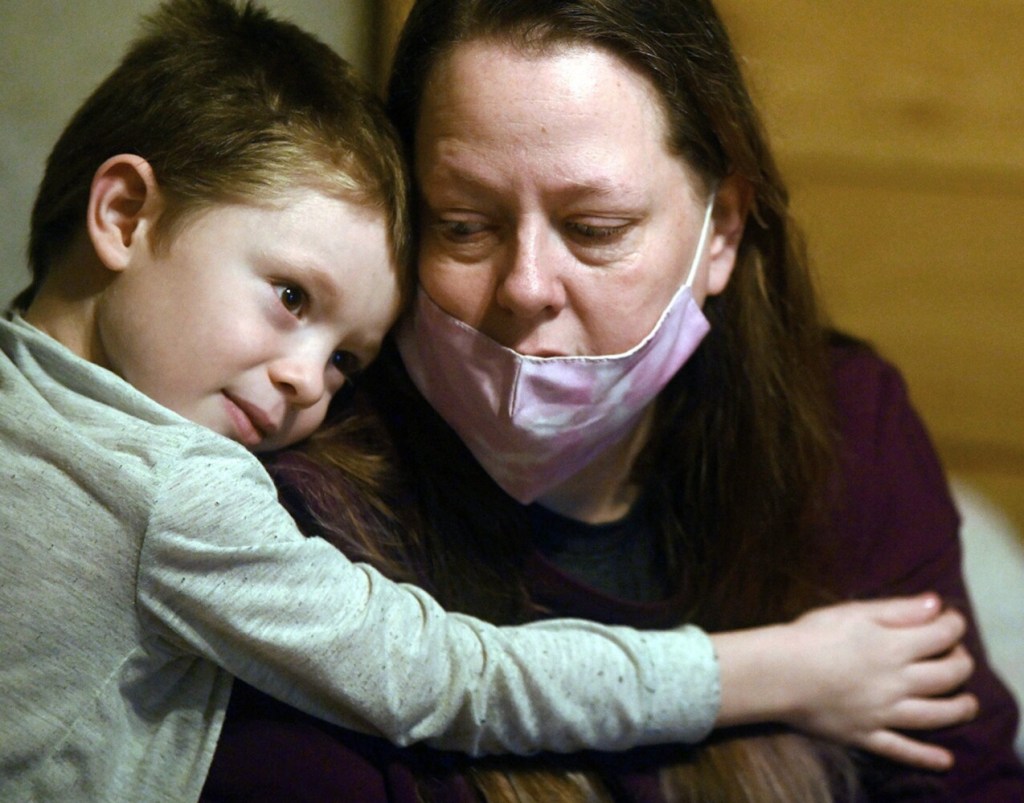
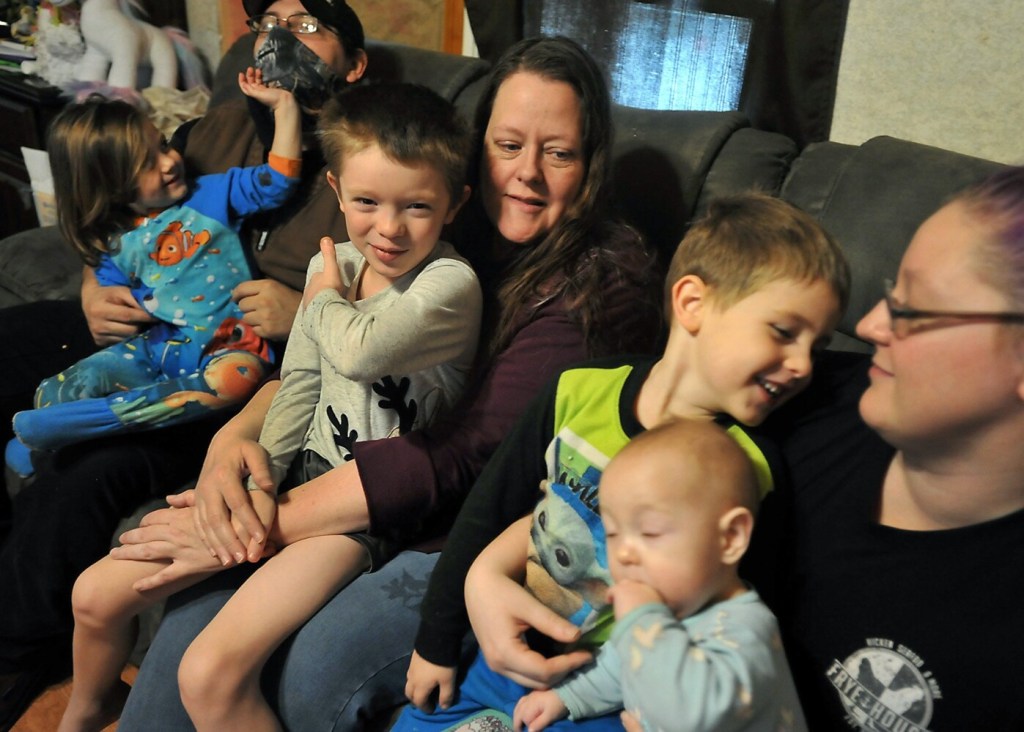
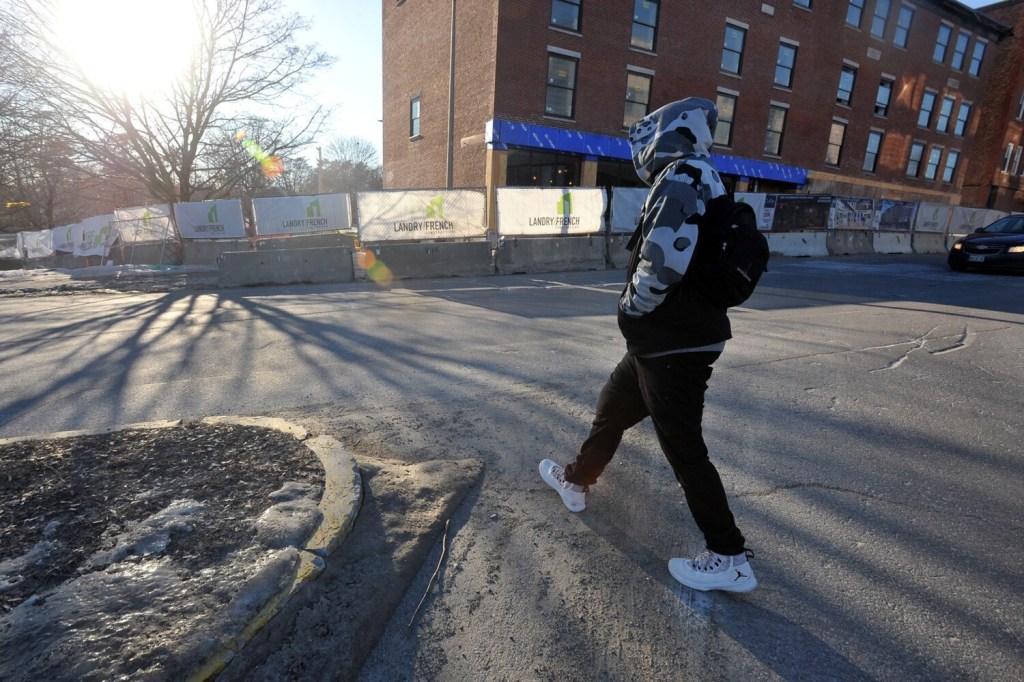

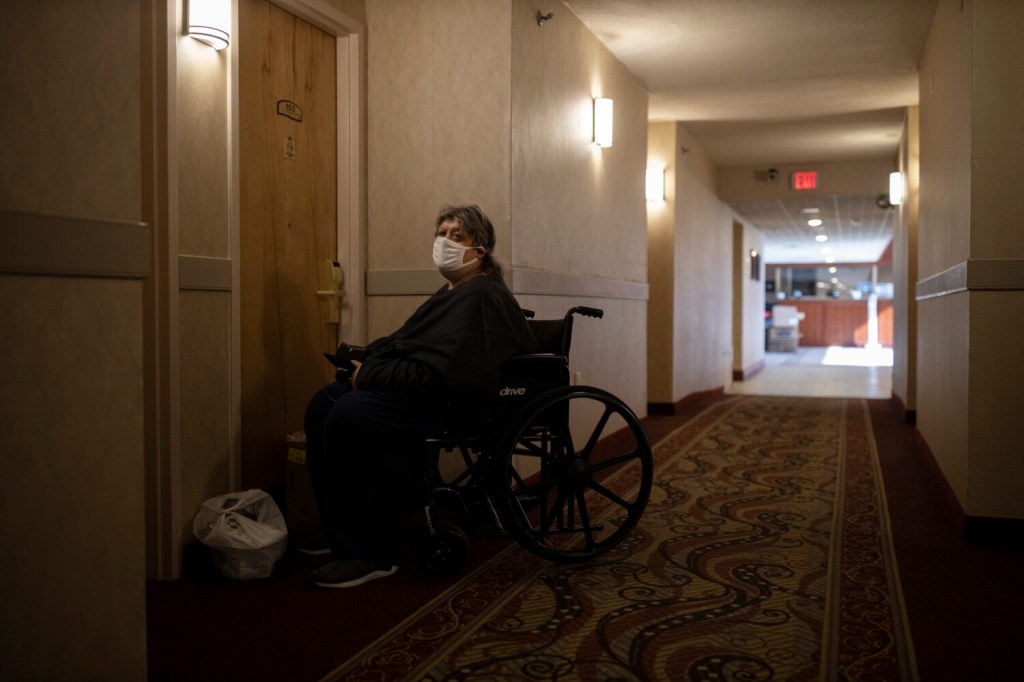
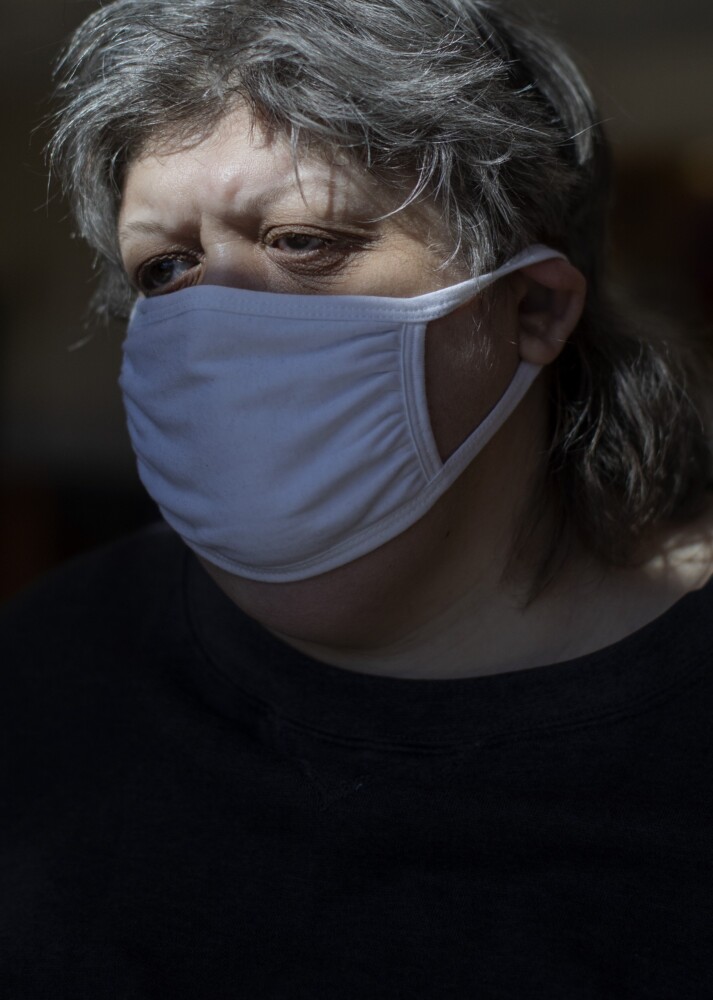
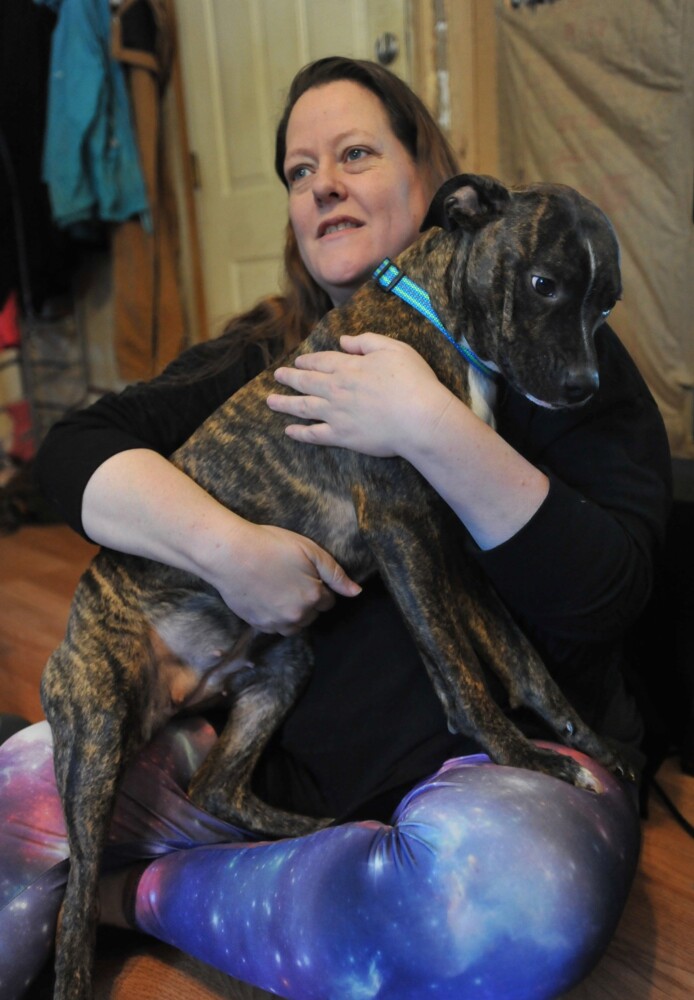
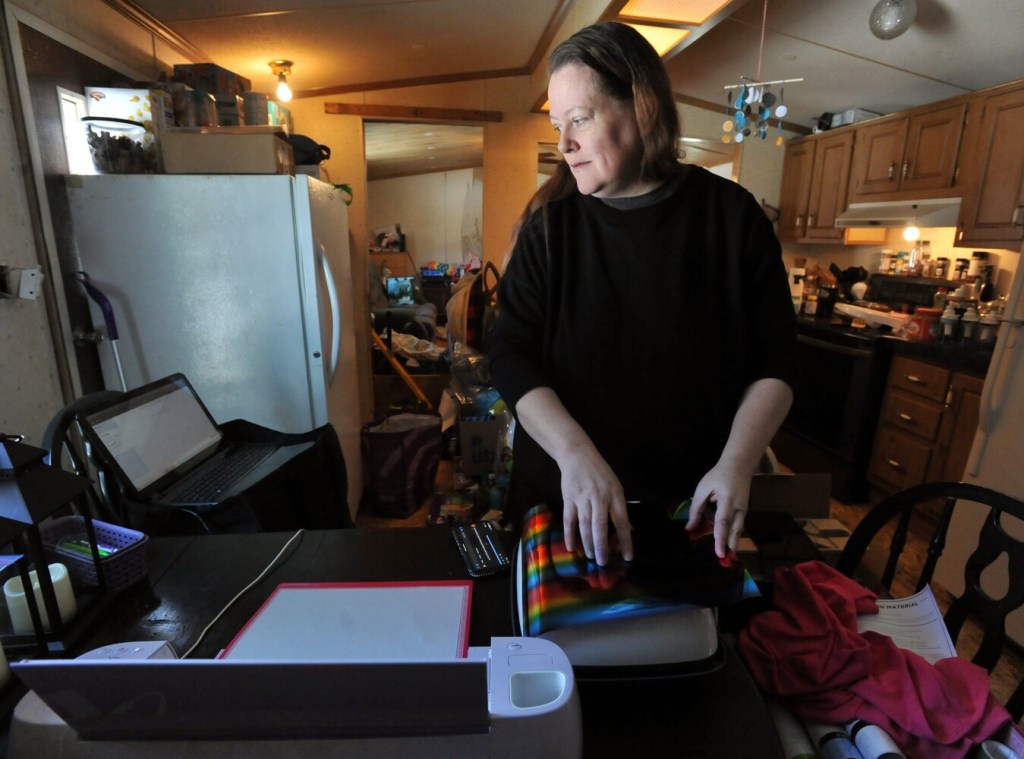

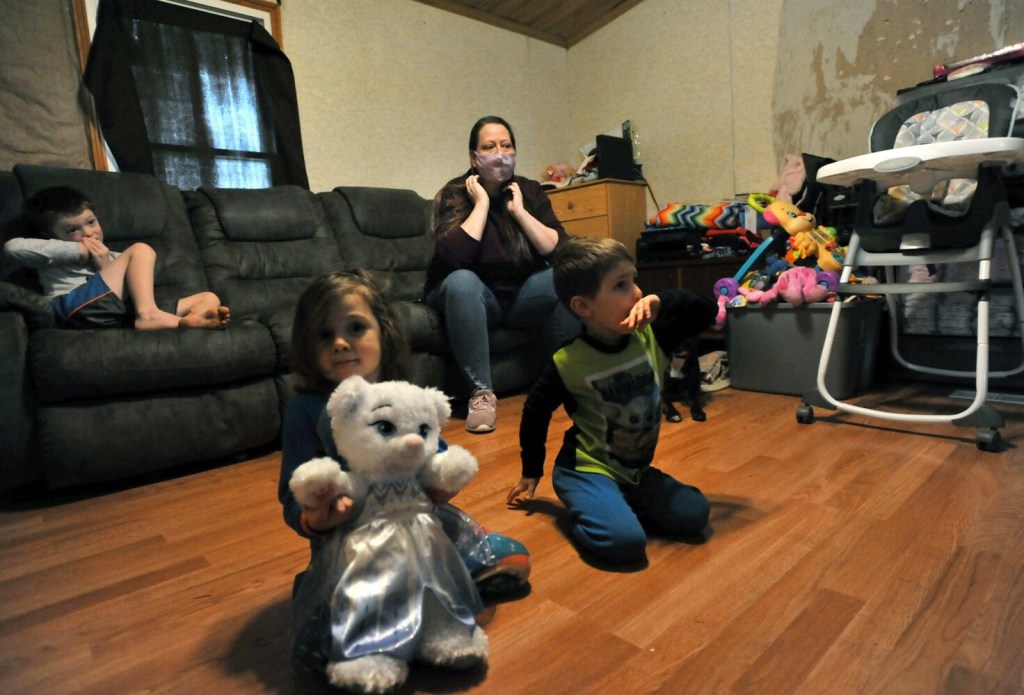
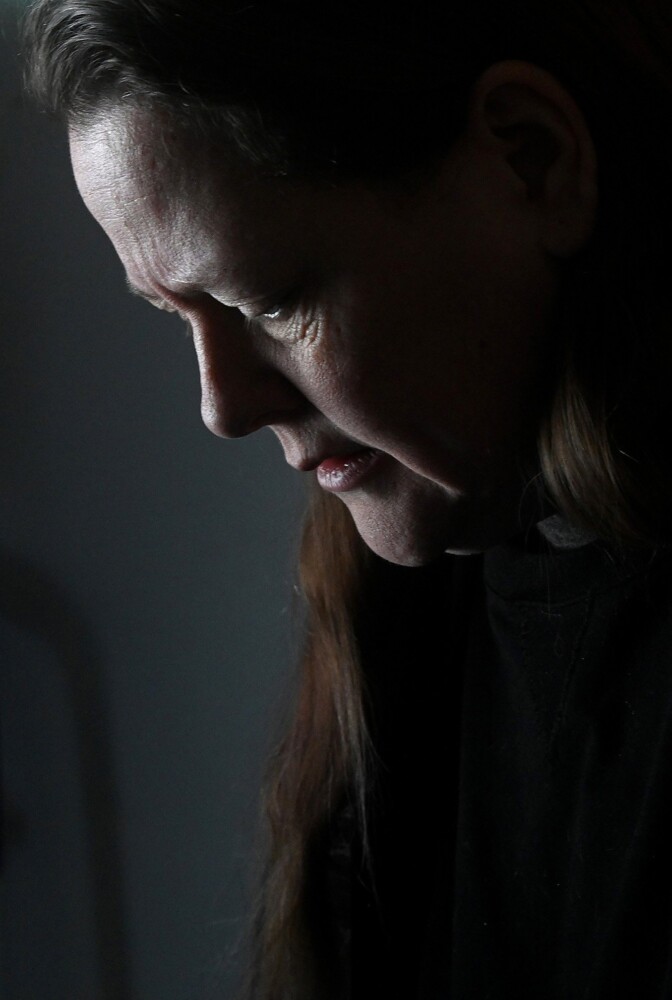

Comments are no longer available on this story